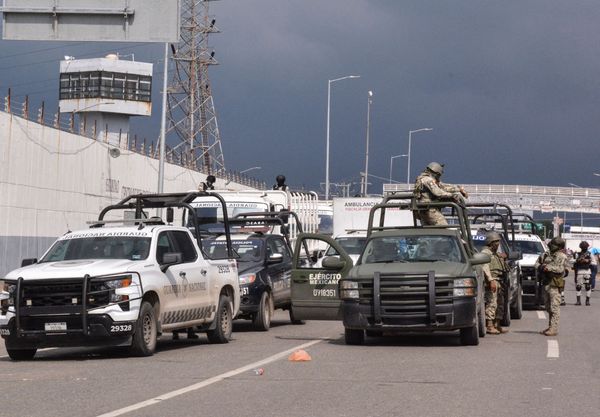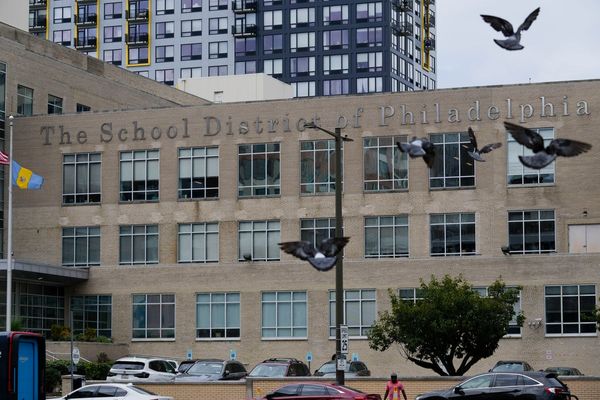
Australians are fed up with Qantas as it takes eye-watering sums of public money while posting huge profits. It controls more than half of the nation’s highly concentrated domestic aviation sector (with help from its subsidiary Jetstar), and has been one of the most complained about companies over the past two years.
This week Labor handed down its much-anticipated aviation white paper, which proposed an ombudsman to oversee airlines and airports. But does the national carrier need a bigger shake-up? Is it time to nationalise Qantas? That’s the question debaters are tossing around in today’s Friday Fight.
Arguing against privatisation we have economist Steven Hamilton, and arguing for we have economist Margaret McKenzie.
The chickens are finally coming home to roost for the disastrous privatisation experiment. Nowhere is this more evident than for air transport, airlines, air services and airports. Qantas we mean you.
The question is why it’s taken so long for the failure of privatisation to become evident and merit political attention. The crises at Qantas and other areas are outcomes of the slow burn of many decades of increasingly inadequate, uneven and expensive service delivery and neglect of capital investment. The answer is to reinvent the wheel and re-nationalise Qantas.
Public ownership of Qantas is the elephant in the room for that masterpiece of obfuscation, the Aviation White Paper.
Qantas was fully nationalised in 1947 by the Chifley government, which purchased all private shares in it due to its “greatly increased expansion and capital requirements”. This was “in line with government policy and with previous actions by all other main Empire units” which all owned their airlines. That was another era.
Qantas was privatised from 1992 (at its merger with the government-owned domestic airline) to 1997 for a value of over $2 billion, worth at least double that in current money, and cheap at the price. The context was the rise and enthusiastic embrace of the neoliberal agenda from the 1980s by all sides of politics as part of microeconomic reform, a term uniquely Australian and now strangely absent from the political lexicon.
Never mind that there was little empirical evidence to support privatisation; ideology would do, courtesy of Thatcher et al (and my, hasn’t that gone well, as the UK prepares to renationalise rail, etc, at last).
The rationale for the privatisation of Qantas and other parts of the air transport industry was seen as the same as for any public enterprise, a one-size-fits-all. Government ownership was assumed to be inefficient and introducing competition would improve industry performance, regardless of the technology of the industry and the needs of its users. Integral to this was the deregulation of labour markets and the weakening of industrial relations.
Times of crisis for government businesses were conveniently seized upon to justify the sell-off of public assets. Public asset sales were also used to fabricate an improvement of the budget bottom line, as Costello did by including asset sales in the budget, including Qantas.
It did not matter that for Qantas, as for other public enterprises with traditionally cyclical returns, government budgets absorbed surpluses and losses over time. The hard-to-measure benefits from public ownership, investment in, and delivery of services were lost.
The resulting erosion of real wages and working conditions, as well as weakened morale, together with the neglect of capital investment, has damaged the quality and reliability of service delivery, producing crises over decades.
With the crises in Qantas and other privatised industries now manifest, we are returning to the reasons for nationalisation in the first place, as is now the case with Qantas.
Whereas public ownership was seen as unduly politicised, privatisation has shown that private ownership of public infrastructure is even more politicised.
The privatisation of Qantas and other publicly owned enterprises has been accompanied by a massive amount of regulation. The tendency for only two airlines to be sustainable in Australia also called for additional regulation after privatisation.
The new regulation was meant to replicate competitive conditions where the most efficient delivery is by one or very few enterprises. Regulation was also needed to address the price setting and control of supply for commercial objectives which could exclude access for some consumers.
Regulation faced the problem that the nature of infrastructure industries was such that so-called competitive pricing of the outputs would not allow capital costs to be met over time, let alone for innovation. That is why they were nationalised in the first place.
The air transport industry faces network externalities, whereby adding an additional destination disproportionately increases the value for all customers, not just those travelling to and from that destination. But the costs for that destination won’t be covered by ticket prices, making it commercially unviable to add it.
When these industry characteristics are coupled with a relatively small market size in terms of numbers of customers and large distances in a country like Australia, it’s hard for more than one or two airlines to run profitably. When those airlines are in place, they are in a position to raise airfares to customers and engage in activity that excludes competition from other airlines seeking to enter the market.
Public ownership of airlines is hardly the exception that the spinners would have us believe. By re-nationalising Qantas, Australia could join the many countries that have some or whole public ownership of their airlines.
Read the opposing argument by Steven Hamilton.







